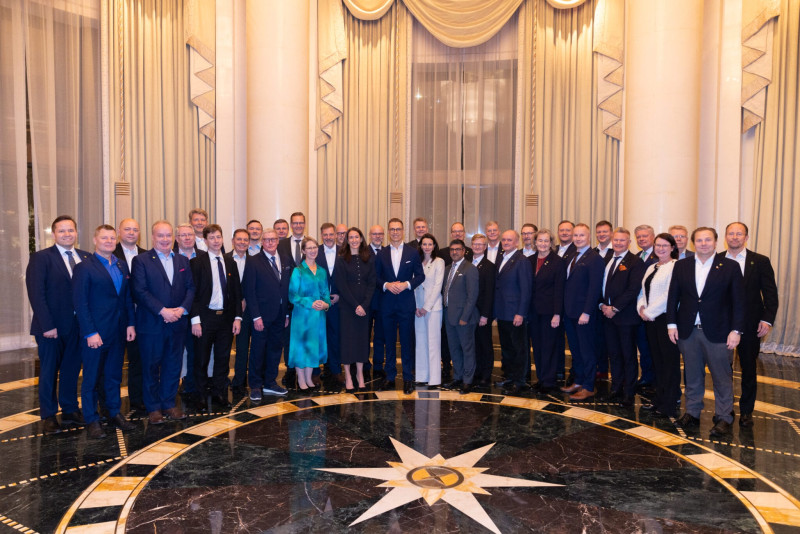Lindström Group, a global textile service company, has recently announced two strategic partnerships in China, coinciding with the Finnish Presidential state visit. These collaborations underline Lindström's commitment to enhancing sustainability in its workwear and cleanroom services, aligning with China’s carbon neutrality targets for 2060.
With sustainability rapidly gaining importance in China, businesses actively invest in sustainable solutions to align with regulatory requirements and meet growing customer expectations. Government policies, including the national goal to achieve carbon neutrality by 2060, further reinforce the priority of sustainable business practices. Aligning with these efforts, Lindström formalised two key sustainability-focused agreements during the presidential state visit.
“Lindström has been in the Chinese market since 2006 and is committed to providing sustainable alternatives for workwear and cleanroom textiles. These strategic partnerships highlight Lindström's dedication to circularity and sustainability,” explained Anupam Chakrabarty, Lindström’s Senior Vice President. Chakrabarty, who joined the business delegation accompanying Finnish President Alexander Stubb, signed the sustainability-focused contracts in a prestigious ceremony at Beijing’s iconic Great Hall of the People.
Collaboration for improved circularity in textiles
One of the most pressing issues in the textile industry globally is the staggering amount of waste it produces—over 85% of textile waste still ends up in landfills or is incinerated. Lindström’s collaboration with Dingyuan Textile Technology, a textile recycling company based in Hangzhou, helps address this problem. The collaboration, which began two years ago, has since expanded to cover Lindström’s waste textiles in the Suzhou, Shanghai, Jiaxing, Wuhan, Chengdu, and Guangzhou regions.
The next step is the development of closed-loop solutions where end-of-life textiles are transformed into raw materials for new products. Incorporating recycled fibres into textiles can help reduce their carbon footprint, as the production of recycled fibres requires less water and energy. Currently, recycled PET bottles are the main source of these fibres, but new innovations are needed to decrease reliance on virgin materials. Closed-loop solutions are an increasing focus in Lindström’s product development.
On the way to halving emissions
As the world faces the consequences of climate change, reducing greenhouse gas emissions remains a top priority. Over 70% of global greenhouse gas emissions stem from energy production, so the transition to cleaner energy sources is vital. One company providing solutions for this is Yuan Tong Hui Energy Technology, a Beijing-based provider of renewable energy solutions. Recognising energy as a core resource in its operations, Lindström partnered with them.
The collaboration is part of Lindström's ambitious goal to halve its greenhouse gas emissions by 2030, a target verified by the Science-Based Targets initiative. This partnership is expected to help Lindström reduce emissions by approximately 450,000 kg. By 2025, Lindström anticipates that half of its electricity in China will come from green sources.
Dennis Chan, Managing Director of Lindström China, elaborates, “Lindström’s efforts to cut emissions go beyond energy sourcing. The company has already transitioned 10% of its logistics capacity to electric vehicles and will continue to do so in the coming years, reducing both CO2 emissions and operating costs.”
A shared commitment to sustainability
These initiatives underscore the collective efforts required to advance environmental responsibility in the business sector. Lindström aims to set a benchmark for industry peers, showcasing that sustainability is an achievable goal through innovation and partnerships.
“With the invaluable support of our partners, Lindström is demonstrating that sustainable transformation is within reach,” says Chakrabarty. “The goal is to lead by example, showing that environmental responsibility and business success can, and should, go hand in hand.”


